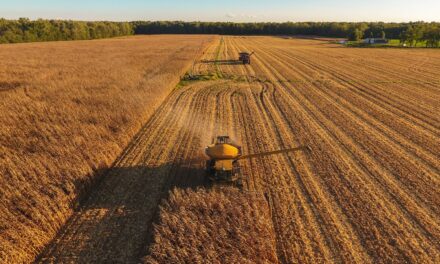Genesis 14:17–24: The Coffers of Abram
Introduction
Satan has many strategies for tempting us to believe God. Primarily, though, he begins by insinuating that God is not good. The very first question that the serpent posed to Eve in the garden of Eden followed this pattern: “Did God actually say, ‘You shall not eat of any tree in the garden’?” (Gen. 3:1). The serpent made no direct accusation. Instead, he planted a seed of doubt in Eve’s mind about whether God might actually stingy, miserly, and oppressive. Nothing could be further from the truth, since God had instructed Adam and Eve to eat in abundance: “[16] You may surely eat of every tree of the garden, [17] but of the tree of the knowledge of good and evil you shall not eat, for in the day that you eat of it you shall surely die” (Gen. 2:16–17). God abounds in generosity; however, through this initial questioning of God’s goodness, the serpent eventually leads Adam and Eve into their infamous rebellion against their gracious Creator.
Ever since then, the human race has fundamentally believed that God wants to keep us from good things. Whenever God forbids us from doing something, or requires us to do something, or asks or to wait for something, we struggle to trust his intentions. Instead, we interpret those trials as yet still more evidence that God wants to control our lives and keep us from things that will make us happy. In Genesis 14:17–24, Abram faces this exact dilemma. Does he actually believe that Yahweh, God Most High, will be good to him? Can Abram trust Yahweh to fill his hands with good gifts? Or, should Abram diversify his plans for enriching himself by seeking alternative revenue streams apart from Yahweh’s promise? What if those plans are at odds with Yahweh’s commandments? In this story, Abram demonstrates an important principle for walking by faith: Faith may lead us to empty our hands, but faithlessness will leave us empty-handed.
Discussion Questions
1. In theory, which person should be richer: the greedy king of Sodom or self-sacrificial Abram? Why is that not the case here? Why does the king of Sodom end up empty-handed? Do greedy, grasping people today still end up empty handed, even if only in the next life? Why, then, do we find ourselves so tempted to grasp after worldly wealth?
2. Why do you think that God forbade his kings from being priests? Read through Psalm 110 and Hebrews 7. What do we learn about Melchizedek? What do we learn about his kingship? What do we learn about his priesthood? From these principles, what do we learn about Christ? Why do you think God draws this story out across so many centuries?
3. What does Abram’s faith in this story teach us about waiting for God to fill our hands, rather than grasping for good gifts on our own? Why is it so hard to trust God for his good gifts? How does the knowledge that God is the “Possessor of heaven and earth” help us to trust him? How can we preach to ourselves God’s goodness when Satan tempts us to doubt?
4. Why does Abram go so far as to swear an oath to reject unlawful enrichment by the king of Sodom? Why do we need strong boundaries to keep us from being drawn away in temptation? What kind of strong boundaries have you established against your temptations? Are there other boundaries that could help keep you pure and unstained by the world?




